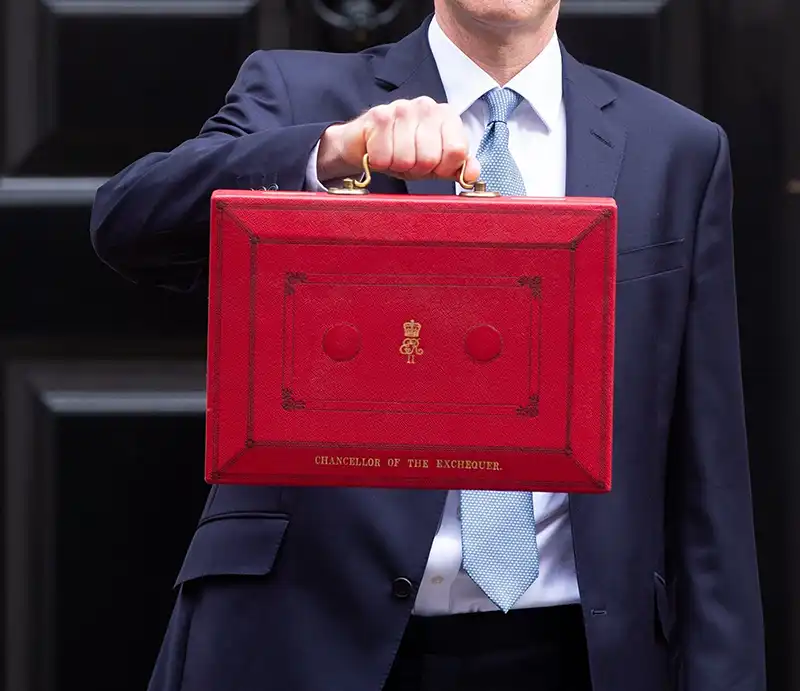Ultimate Checklist For Starting A Business

Starting a business in the UK can be a complex process, but with careful planning and organisation, you can minimise the risks and maximise your chances of success.
Here’s a checklist to get you started:
Company Structure
One of the first things you should figure out when starting a business (aside from your business idea) is to choose a business structure. Decide whether you want to set up as a sole trader, partnership, limited liability partnership (LLP) or a limited company. Check out our other blog on the different business structures and their advantages and disadvantages.
Business Name
Next up, you should choose a name for your business. If the TV show ‘The Apprentice’ has taught us anything, it’s easier to pick a bad name than you think. Just remember that this is your brand and generally sets the tone for your business. If in doubt, keep it simple. Barry’s Antiques or Sally’s Spaceship Repairs do exactly what they say on the tin. Be sure to check whether the name is available and that you’re not infringing any trademarks.
Register for taxes
One thing you should definitely not forget is to register your business. Register with HM Revenue and Customs (HMRC) for tax purposes, and with Companies House if you’re setting up a limited company. Don’t worry if you do start a business but forget to tell HMRC; you still have until the 31st of October following the end of the tax year to inform them and complete a self-assessment by the 31st of January. Thinking of hiring employees? Be sure to register as an employer and set up a payroll system. You can register for corporation tax here or self-assessment here.
Check your legal obligations
Depending on your business activities, you may need to obtain specific licenses or permits, such as a premises license, food hygiene certificate or environmental permit. Be sure to do everything by the book, to avoid a headache further down the line. Be sure to consult with your local council or trade association if you’re unsure of anything.
Banking for business
One thing that often gets overlooked is setting up a business bank account: It’s essential to keep your personal and business finances separate (not to mention it makes everything a lot easier for you and your accountant when it comes to your accounts. There are many offerings from Highstreet banks and fully online banks to choose from. Sometimes, it’s easier and nicer to use the same bank you have a current account with and it’s usually easier to set up. Don’t necessarily be drawn in by introductory offers as these fade and business bank accounts often come with fees.
Get on top of your accounting
Keep track of your expenses by establishing an accounting system. Decide how you’ll keep track of your income and expenses, and ensure that you comply with tax and accounting regulations. Not least because you’ll know if you’re making money or not! If you can keep all your expenses and income within your bank account, that is the best way to keep things all in one place but it’s not always practical; you may have bought something before you set up your bank account, you may have been paid in cash or you might have even used the wrong bank card.
Keeping on top of your accounting system and keeping your personal and business expenses separate can be made easier by the advent of cloud-based accounting software such as Xero, QuickBooks, FreeAgent.
Business Insurance
Protect yourself and get business insurance. Depending on your business activities, you may need to obtain insurance to protect your business. Indemnity insurance, public liability insurance, employer liability insurance among others cost nothing compared to the bill you could face if something went wrong. Owning a business is a risky business, but that doesn’t mean taking unnecessary business risks like not taking out the right business insurance (did I say business enough times there?).
Go online and advertise
Set up a website and social media profiles. Establish an online presence to reach potential customers and promote your business. Some are free to set up and give you another way to advertise your business. Whilst you’re at it, why not create a whole marketing strategy: Determine how you’ll market your business, including advertising, public relations and social media. Also consider using more traditional forms of advertising such as newspapers, radio and billboards.
Running a business isn’t easy but starting one from scratch can be overwhelming. With careful planning and support, you can succeed. Consider seeking advice from a business advisor or accountant or lawyer to ensure that you comply with all legal and financial requirements. We’re always here to support any new business here at Jacksons Accountants and we’re proud to help businesses in and around Mansfield and Sheffield. Why not get in touch for a free consultation?
Looking for an Accountant?
Contact us for accounting support! Simply fill out the form below, and our team of qualified accountants will be in touch with you soon.

















